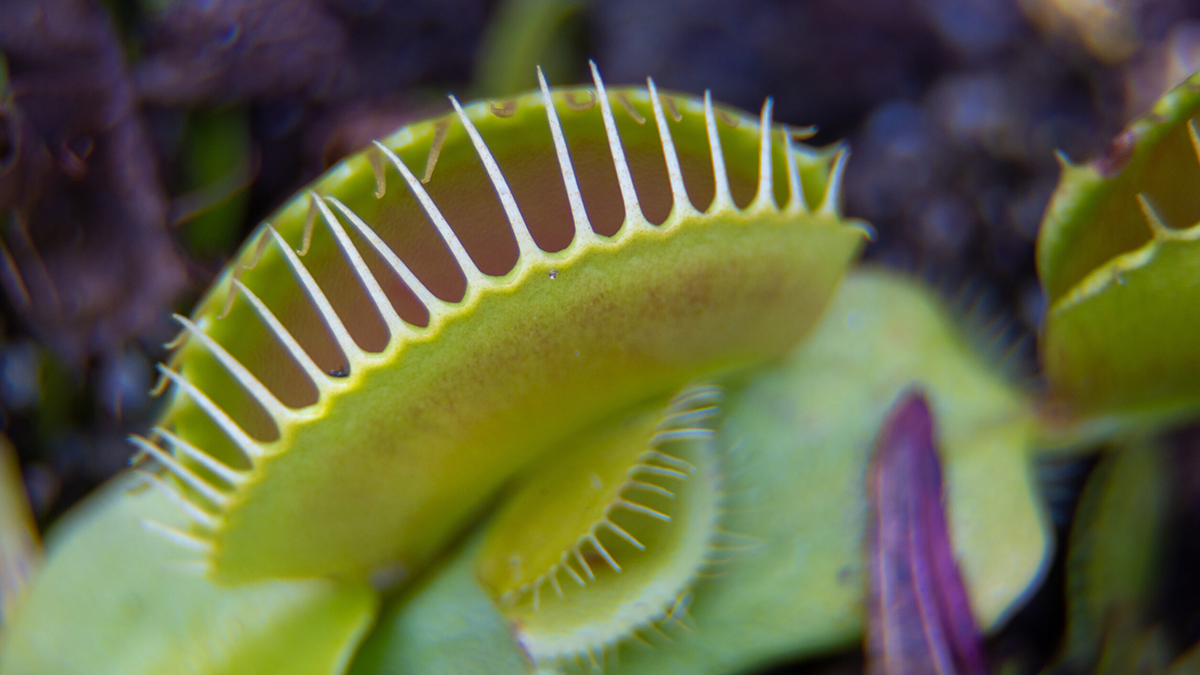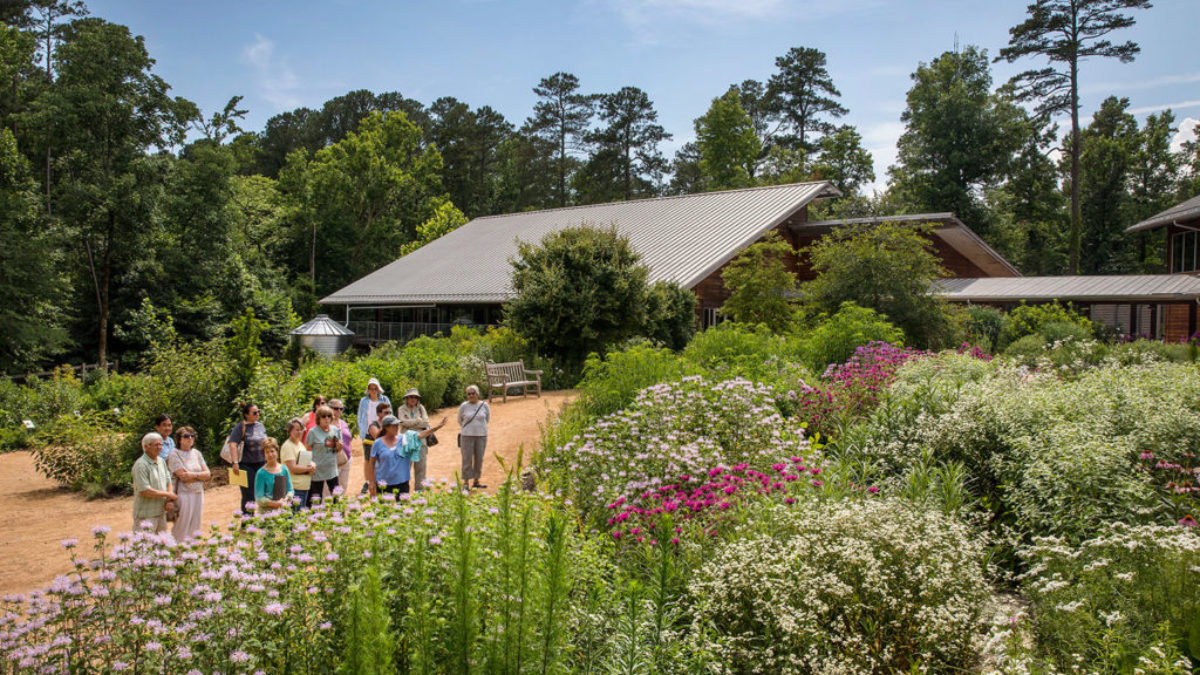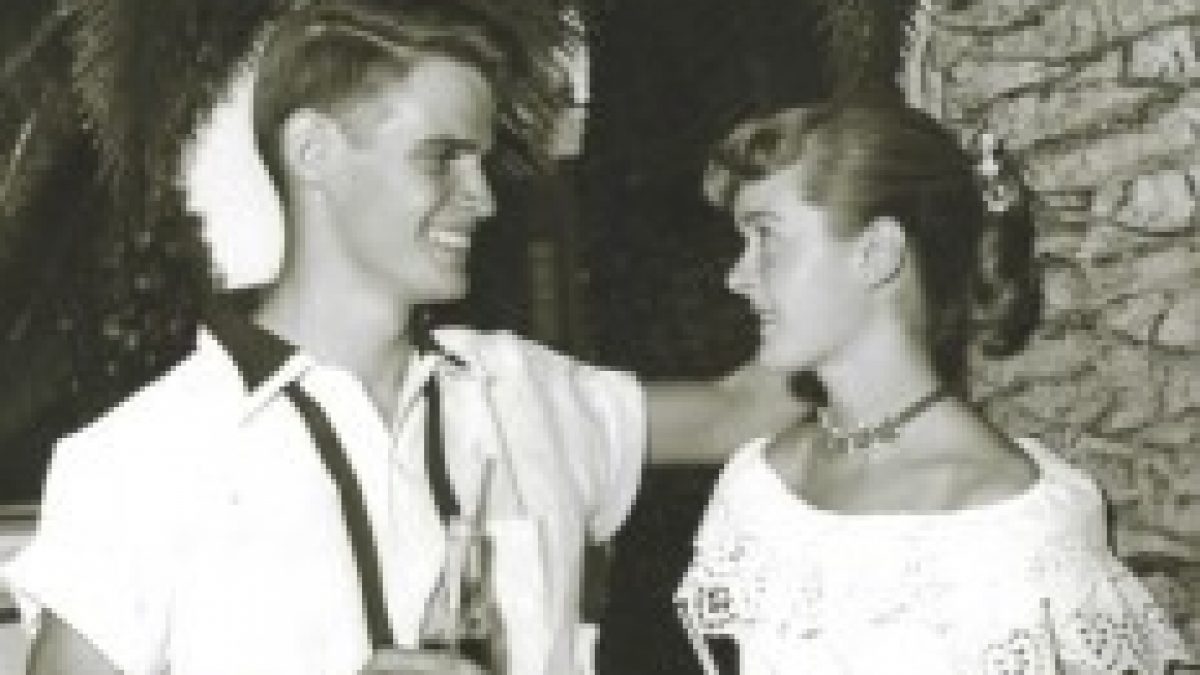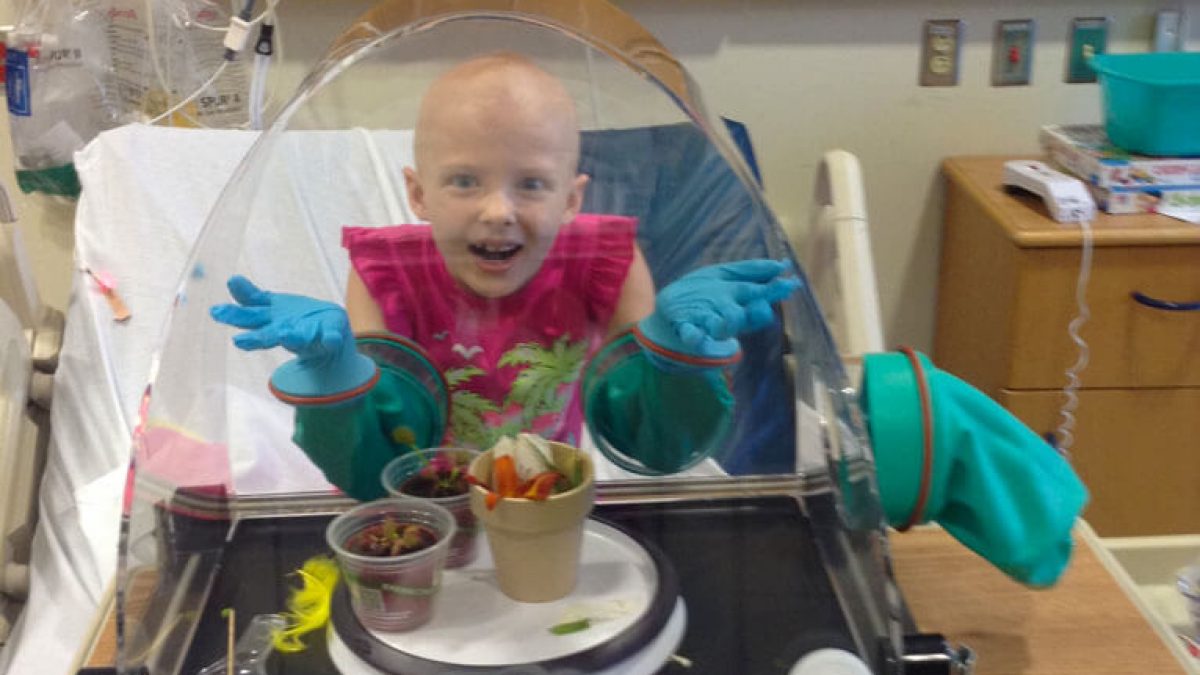Magnifying NCBG’s Impact
Published on November 15, 2022The North Carolina Botanical Garden has made a large impact on native species

The North Carolina Botanical Garden has made a large impact on native species
While walking through the North Carolina Botanical Garden (NCBG), it’s easy to find carnivorous plants. Just follow the kids. On the weekend, it’s common to see groups of children gathered around a planter, staring intently, hoping to witness a poor hapless insect become lunch for the many pitcher plants and Venus flytraps that populate the garden. NCBG’s mission is to research, catalog, and promote the native plant species of North Carolina — and entertaining kids is a bonus.
The Coker Arboretum represents the first steps toward what would become the NCBG. It was established in 1903 as a teaching collection of trees and shrubs planted by William Chambers Coker, Carolina’s first professor of botany. Coker and his protégé, Henry Roland Totten, sought to construct a more comprehensive botanical garden south of the main campus beginning in the late 1920s.
After some plantings occurred in the 1930s and ’40s, UNC-Chapel Hill trustees committed 70 forested acres to the establishment of a botanical garden in 1952.
The North Carolina Botanical Garden’s primary exhibition space is home to eight significant collections: the Southeastern Habitat Collection, which includes the Mountain Collection, the Sandhills Collection and the Coastal Plain Collection; the Plant Families Garden; the Carnivorous Plant Collection; the Rare Plant Collection; the Southeastern Fern Collection; Native Perennial Borders; the Aquatic Collection and the Mercer Reeves Hubbard Herb Garden.
Today, the NCBG has become a hub for the research, exhibition, interpretation and protection of plants and their natural habitats.
Learn more about the NCBG and see more of Carolina in macro…Opens in new window




